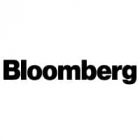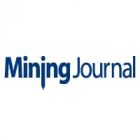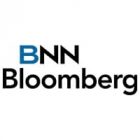Critical Minerals and Energy Intelligence
Geopolitics
Geopolitics has become one of the most the defining forces driving volatility and risk across the mining industry.
Intensifying trade wars, export restrictions, and resource nationalism are fragmenting global mineral supply chains, leading to unpredictable swings in commodity prices and availability. Countries are increasingly prioritizing domestic access to critical minerals, imposing new tariffs, export controls, and regulatory hurdles that complicate cross-border investments and partnerships.
This fragmented landscape raises the bar for project financing, heightens operational uncertainty, and fuels a wave of litigation and contract disputes-particularly in emerging markets where governments seek greater control or revenue from mining activities.
For investors, navigating this environment requires a sharp focus on geopolitical developments and adaptive strategies to manage both short-term volatility and long-term supply security
Geopolitics Insights
Latest News
The Importance and Volatility of Geopolitics in Mining
Geopolitics has become one of the single most influential force shaping the mining and metals sector in 2025, driving both opportunity and volatility across global markets. As nations compete for critical minerals essential to energy transition, technology, and defense, the mining industry is navigating a landscape defined by political risk, trade disputes, and shifting alliances.
Fragmented supply chains and strategic competition
The era of efficient, globalized mineral supply chains is giving way to a fragmented system, as countries prioritize security over efficiency. The US, EU, and China are building parallel resource and manufacturing networks, each seeking to secure upstream access to minerals like lithium, copper, rare earths, and graphite. This drive for redundancy and resilience is resulting in a “patchwork” of bilateral deals, export controls, tariffs, and direct state intervention, causing unpredictable swings in product availability and prices.
Resource nationalism and export controls
Resource nationalism is on the rise, with governments imposing export restrictions, increasing regulatory scrutiny, and tightening control over domestic mineral assets. China’s recent export bans on gallium, germanium, graphite, and other critical minerals have sent shockwaves through global supply chains, highlighting the risks of overreliance on a single country for processing and refining. These measures can trigger sharp price spikes, disrupt manufacturing, and force companies and countries to reconsider their sourcing strategies.
Market volatility and investment uncertainty
Geopolitical turbulence is fueling volatility in metals prices, asset values, and capital flows. Trade wars, fluctuating demand from major economies, and currency shifts add layers of complexity for miners and investors. Regulatory uncertainty and government intervention in emerging and developed markets alike are making it harder to raise capital, plan new projects, or predict long-term returns. Companies must now factor in not just geological risk, but also the potential for sudden policy changes, sanctions, or supply chain disruptions.
Supply security and strategic alliances
To mitigate these risks, countries and companies are forging new alliances and investing in domestic or regional supply chains. Subsidies, tax credits, and preferential trade policies are being deployed to attract investment and reduce dependence on foreign suppliers. However, this shift can also distort markets and discourage investment in less stable regions, further tightening supply and amplifying price volatility.
Conclusion
Geopolitics is no longer a background factor but the dominant driver of mining industry fortunes in 2025. The sector’s future will be shaped by how well companies and investors navigate this volatile chessboard-balancing opportunity with risk, and agility with resilience-as the global race for critical minerals intensifies

US Defence Department warns of urgent need to secure critical minerals
The US Department of Defence (DOD) has warned that securing critical minerals is crucial for the US defense industrial base — to build everything from unmanned

Military junta in Niger seizes uranium mine from Orano
The military authorities in Niger have seized Orano’s SOMAÏR uranium mine, according to the French nuclear group. The military seized control of Niger’s government in

Turning critical minerals into free range eggs
The West wants to secure critical mineral supply chains — not with massive state subsidies, significant to China — but with market forces. The challenge: the geographical

Refining is the chokepoint
Let’s start with the good news. The West is extremely concerned over securing critical mineral supply chains, especially after Covid, Russia’s invasion of Ukraine and

Big mining M&As too late to stop critical mineral supply crisis
BHP has proposed a US$39 billion takeover of Anglo American, in what would have been the largest mining deal on record and create the world’s

Russia’s military scramble for African critical minerals
On March 16, 2024, Niger’s military government announced it was breaking off with immediate effect its military cooperation with the US and revoked a military














